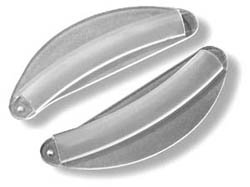Which sources have you been reading? Maybe the wrong sources? Here's an extract from a study published by Health and Human Services. Read the entire article, but the gems in there are:stevej1234 wrote: ↑Wed May 15, 2019 9:03 amI would love to go forward with it, but I have a mortal fear of general anesthesia and fear of not waking up , and also fear of being unable to observe or react to what's happening to me. It has not helped reading more about it, since I understand now that general anesthesia is actually a medically induced coma, though a temporary, reversible one. Maybe.
The rate of death is thought to be even lower presently. Also, note that the elderly (over 85) are skewing the mortality rate upward....anesthesia-mortality risk has declined from about 1 death in 1000 anesthesia procedures in the 1940s to 1 in 10,000 in the 1970s and to 1 in 100,000 in the 1990s and early 2000s.
Get the surgeon to prescribe a sedative to take as soon as you arise on the day of the surgery. You could also visit a mental health counselor or even a hypnotist.
Not to scare you, but the effects of untreated OSA are much more likely to kill you prematurely than the anesthesia/surgical procedure.stevej1234 wrote: ↑Wed May 15, 2019 9:03 amI was diagnosed with moderate OSA in 2015 but have remained untreated for years since i cannot keep the mask on at night. I am more and more ever tired.
I hope to hear soon that you have overcome the irrational fears and have excellent results from the surgery.








